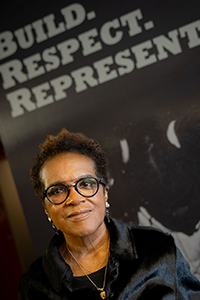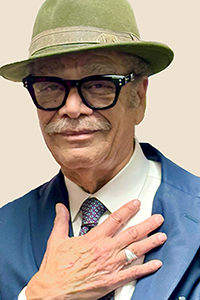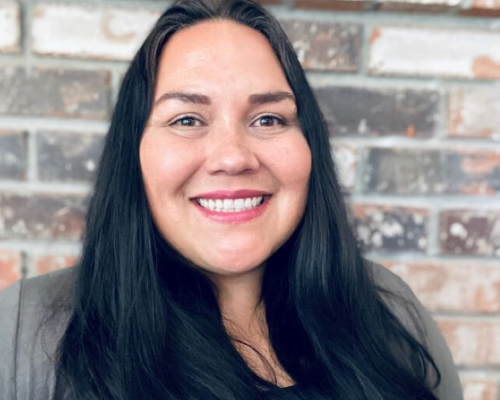Anthropology professor establishes student scholarships with donations to SF State
Dawn-Elissa Fischer creates awards in honor of scholar Marcyliena Morgan, civil rights attorney Walter P. Riley
Extending an academic family tree to today’s students and future generations, a professor at San Francisco State University has created two scholarships for students.
With two generous donations to San Francisco State, Anthropology Professor Dawn-Elissa Fischer has established the Marcyliena Morgan Scholarship and the Walter P. Riley Radical Change Scholarship. Both awards are eligible exclusively to SF State students.
Fischer created the awards to respectively honor Morgan, a Harvard University professor and renowned scholar of hip-hop, and Riley, an Oakland civil rights attorney and activist. Both Morgan and Riley have each fought injustices and opened doors with global impact.
“Dr. Marcyliena Morgan and Walter Riley are revolutionaries in their own distinct ways,” Fischer said. “Their steadfast efforts have brought about widespread recognition for activists and hip-hop artists as organic intellectuals with integrity.”
With both awards, students will gain opportunities to meet mentors, join professional networks and establish their own. As a faculty member, Fischer says that mentorship is critical to engender success in students, particularly those from underrepresented groups without equitable access to professional networks. She learned the value of networking from mentors like Morgan, but also through her personal academic family tree: Fischer’s parents, grandparents and great-grandparents were all educators.
“There are so many layers and roles that faculty play in helping students build scholarly community,” Fischer said. “In my family, it comes from a Historically Black College and University tradition, and it recognizes structural factors that often block access for talented individuals to plug into success networks,” Fischer added. “And when that happens, society loses.”
Marcyliena Morgan Scholarship
The Marcyliena Morgan Scholarship provides stipends for activities related to student professional development, such as travel, lodging and conference fees. These experiences enhance students’ knowledge, but perhaps even more importantly, also allow them to build their own professional networks.
At Harvard, Morgan is the Ernest E. Monrad Professor of the Social Sciences, a professor in the Department of African and African American Studies and the executive director of the Hiphop Archive and Research Institute. Her books include “Language, Power and Discourse in African American Culture,” “Speech Communities: Key Topics in Linguistic Anthropology” and “The Real Hiphop: Battling for Knowledge, Power and Respect in LA’s Underground.”
In December, Fischer was among the invited presenters at a tribute to Morgan at Harvard, alongside other notable mentees in academia. Fischer’s presentation makes note that Morgan’s multigenerational, worldwide impact has reached SF State: Fischer has worked with Morgan at the institute, directing special programs and collections for two decades and — along the way — connecting SF State students with Harvard fellowships.
Walter P. Riley Radical Change Scholarship
The Walter P. Riley Radical Change Scholarship honors students committed to pursuing radical social change through community involvement.
An activist since high school in the Jim Crow South, Riley attended SF State in the 1960s and became involved in Students for a Democratic Society, Black Students for Open Admissions and the student strike for Black and ethnic studies. His work is centered around labor, education, housing access, anti-apartheid, anti-war, police misconduct, voter registration and cultural issues. He has worked with the Black Panther Party and in grassroots efforts to prevent urban displacement of Black and other working-class communities. Riley’s numerous recognitions include the 2015 Law for the People Award from the National Lawyers Guild.

Marcyliena Morgan. Photo by Melissa Blackall/Courtesy of the Hutchins Center for African & African American Research.

Walter P. Riley
